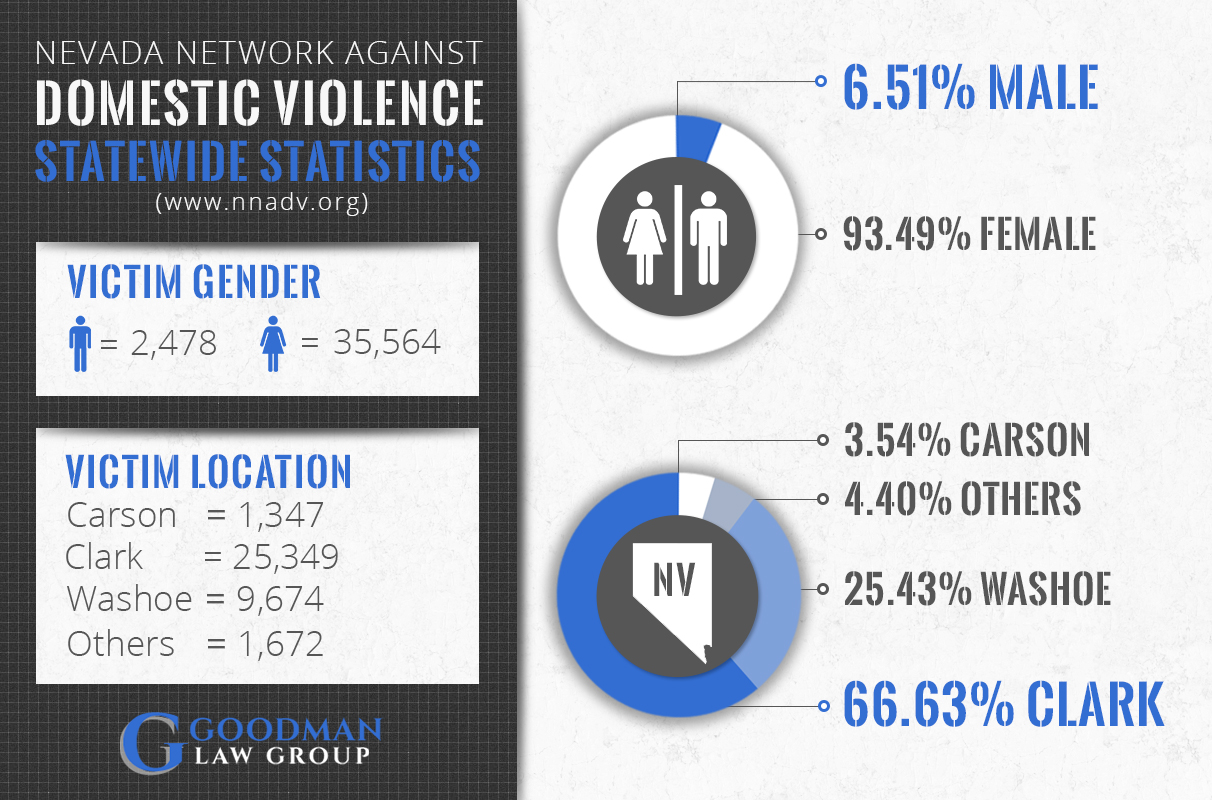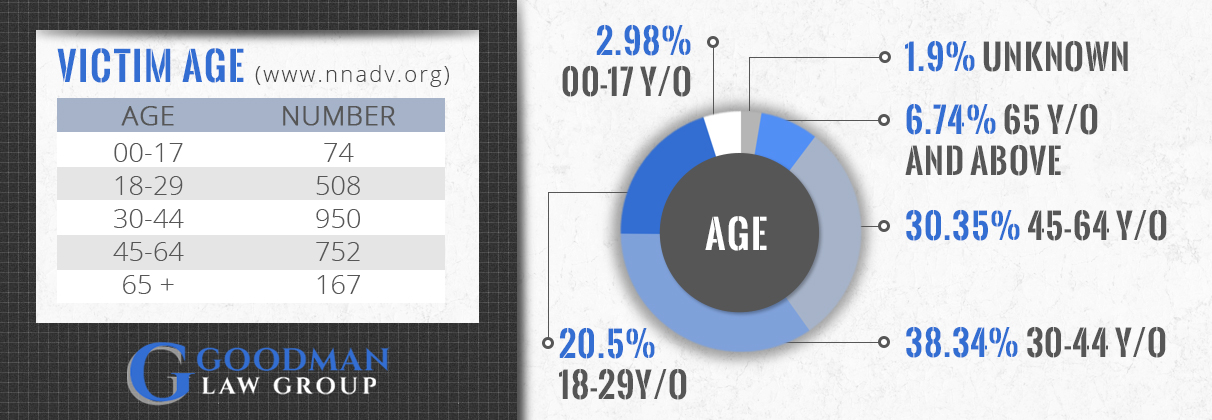It is common to come across cases of domestic violence against women, children, or elderly. But according to CDC’s 2010 report, 1 out of 4 men in the United States are also victims of intimate partner violence. Although this data might be outdated, it points out that domestic violence against men is a reality that the society rarely acknowledges.

Let’s take Nevada for a more recent and focused data on this subject. According to the Fiscal Year Report (July 2013 – June 2014) in Nevada, there are about 38,042 primary victims of domestic violence reported, majority of which are in Clark County, the most populous county in Nevada.

Out of 38,042 primary victims, the number of male victims is 2,478. Most of these male victims are middle-aged men. (Source: NNADV) Based on the statistics, it is evident that domestic violence against men cases are relatively lower than of women and children’s, but it does not make these cases less important.
Abused men in same-sex relationships
Domestic violence can also happen to same-sex relationships as much as in heterosexual relationships. In fact, according to NCADV, 2 out of 5 gay or bisexual men experience intimate partner violence. Although the main subject in the study is male victims, this is also applicable to lesbian couples. There are cases where some men are abused by their male partners because they are the submissive ones.
Men as victims in heterosexual relationships
There are certain relationships where women are more authoritative than men. These women could be physically stronger (e.g. woman slapping her 67-year old boyfriend), more financially capable, or have a more dominant personality than their partners. According to a study (Corry, Feibert & Pizzey, 2002), some women hurt their partners because of the following justifications:
- argument resolution
- lack of attention shown by the male partner
- the notion that men can immediately protect themselves
- that they would not hurt a woman back, and many others.
Why men don’t seek help?
Male victims experience different forms of domestic violence and most of them might not have realized them yet or simply do not acknowledge them. Do you want to know why men do not usually come forward and report abuse? Here are some possible reasons:
- They feel ashamed
It has been a common societal perception that men can protect themselves because they, by default, are more powerful than women (physically, emotionally, financially, etc). - It is uncommon in our society
Because it is unusual for men to be abused, male victims tend to hesitate coming forward, thinking that the authorities might not believe them. There are only limited facilities that support men compared with facilities that support women domestic violence victims. - They want to protect their children
Some men feel that there is a possibility that their partner will also hurt their children if they leave or seek legal help. There could also be threats of taking away their children for good. - In denial
Some men do not acknowledge their situation. They believe that there is nothing wrong going on or it is just a normal part of their relationship.
(Source: Help Guide)
Indicators
Aside from physical abuse, which is a common indication of domestic violence, men could also be violated emotionally, verbally, or sexually. Here are some indicators that can help you determine if a man is being violated or is a victim of domestic violence:
- Total control
The abusive partner controls everything: his money, his clothes, the places he goes to, the people he can see, etc. - Physical harm
The abusive partner always/occasionally hits, slaps, or chokes the victim. This also include sexual acts against the victim’s will. - Threats
The abusive partner threats the victim with weapon or any violent act. Other threats might involve exposing the victim’s sexual preference (applicable for gay men who have not come out yet), taking away the children from the victim, etc. - Paranoia
The abusive partner accuses the victim of infidelity, etc.
Clearly, domestic violence is not a gender-based issue. It is about power and control over someone regardless of gender. Domestic violence could be caused by psychological disorders, social influences, or family background of the offender. (Source: LPAC)

